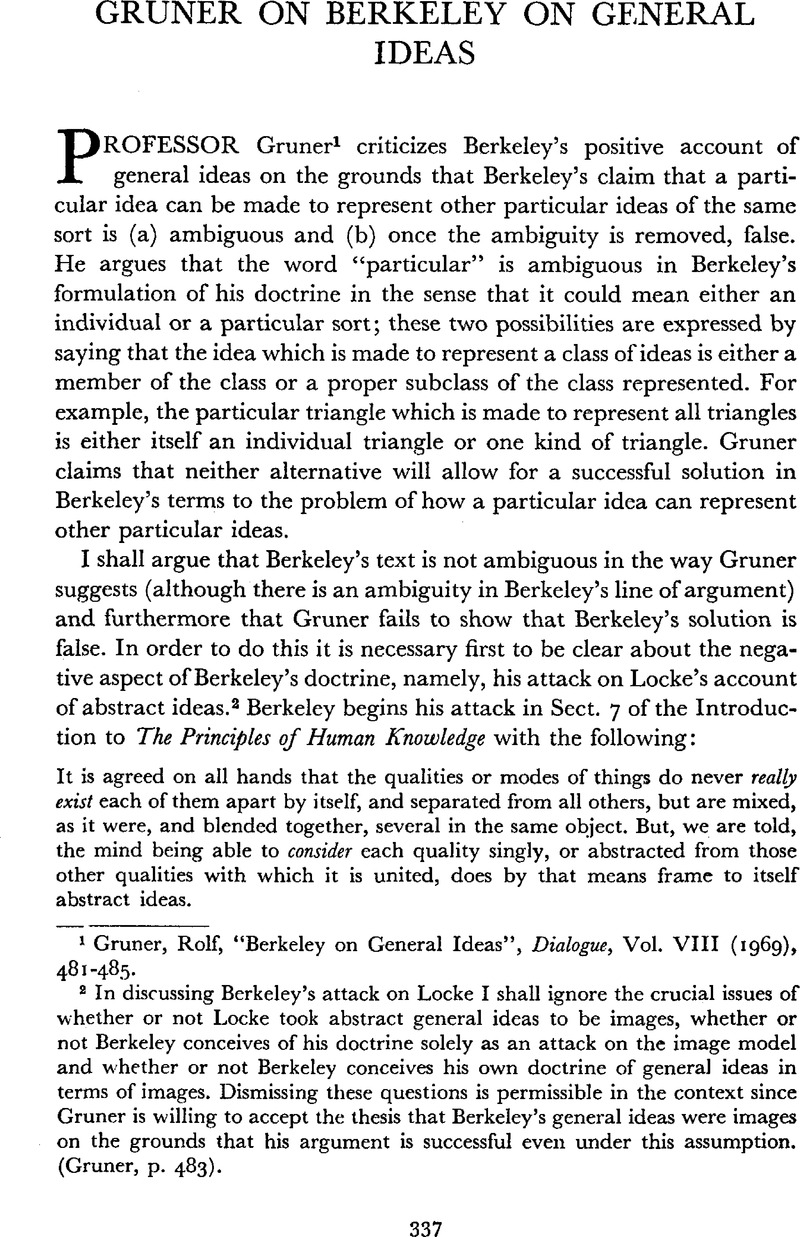Article contents
Gruner on Berkeley on General Ideas
Published online by Cambridge University Press: 01 June 1971
Abstract

- Type
- Notes—Discussion
- Information
- Dialogue: Canadian Philosophical Review / Revue canadienne de philosophie , Volume 10 , Issue 2 , June 1971 , pp. 337 - 341
- Copyright
- Copyright © Canadian Philosophical Association 1971
References
1 Gruner, Rolf, “Berkeley on General Ideas”, Dialogue, Vol. VIII (1969), 481–485.CrossRefGoogle Scholar
2 In discussing Berkeley's attack on Locke I shall ignore the crucial issues of whether or not Locke took abstract general ideas to be images, whether or not Berkeley conceives of his doctrine solely as an attack on the image model and whether or not Berkeley conceives his own doctrine of general ideas in terms of images. Dismissing these questions is permissible in the context since Gruner is willing to accept the thesis that Berkeley's general ideas were images on the grounds that his argument is successful even under this assumption. (Gruner, p. 483).
3 it is at this point that the question of Berkeley's psychologism becomes crucial, for the extension of the principle to cover thought would seem to rest on treating thought in terms of images.
4 For a discussion of this point see Weinberg, Julius R., Abstraction, Relation and Induction (Madison, 1965), 5–32Google Scholar. See also Wilson, Fred, ”Weinberg's Refutation ofNominalism”, Dialogue, Vol. VIII (1969) 460–474CrossRefGoogle Scholar.
5 Gruner, p. 482.
6 Berkeley, The Principles of Human Knowledge, Introduction, Sect
- 1
- Cited by


